Ants are cold-blooded. In order to thrive and survive, they need an external source of warmth. Obviously, it gets considerably harder for ants to find these external sources in winter. Especially the ants that happen to live in Michigan.
Despite the considerable adversity facing them each winter, ants are determined creatures. Subzero temperatures don’t stop their relentless drive to find food, shelter, and water. In order to find what they need this winter, ants will often attempt to infiltrate homes. Including your home, if you’re not careful. If you’re asking why you still have ants in winter, you’re in the right place. We’ll answer that question–along with how those ants got in and how to throw them out–below.
Why do I still have ants during the winter?
You have ants during the winter for the same reason you have them during spring, summer, or fall. Your home was easy to get inside and offered them the things they were looking for. If ants can’t find a home to infest, they’ll build their colonies and cluster under rocks, tree bark, decomposing leaves, or deep within the ground. If they can find a home, well… then there’s a problem.
If they find a warm place (your house, for example) to nest in the winter, ants won’t need to cluster. They’ll instead be able to remain active throughout the entire year. Inside homes, they’re most commonly found inside walls, near pipes, inside molding, or under baseboards. They got inside by finding a breach in your home’s perimeter. It could have been crumbling brick, old boards, or a crack in the foundation.
What do they want?
Ants want what all common problem pests want: food, shelter, and water. If you’re reading this, it means you’re likely already facing an ant problem. That means they’ve already found one of the things they were looking for: shelter, warmth, and cover from the cold. That’s what brings them in.
What makes ants stay after they get inside will be how well they can find food and water. Ants like sugar, fat, and protein-dense foods like meat, cheese, dried goods, peanut butter, baking materials, or pet food. Water is a less significant motivator since they require very little to sustain themselves. Ants are commonly found near hidden plumbing leaks because they like its easy, consistent moisture access.
What can I do to prevent them?
That’s the most important question. If you don’t already have an ant problem, how can you prevent one from happening? Here are a few of our best ant exclusion tips:
- Keep surfaces clean. Ants are scavengers. Their favorite places to find sustenance are on floors, garbage cans, and countertops. Keep dirty dishes out of the sink, wipe crumbs off the table, and mop residue off the floors.
- Practice perimeter maintenance. Ants are tiny. It doesn’t take much for them to find a way inside your home. Just because it’s difficult to bar their entry doesn’t mean you shouldn’t try, however. Follow their trails to see where they’re coming in. Find perimeter breaches and fix them with caulk, putty, or plaster as needed.
- Spot the scouts. If you ever see a lone ant, it’s a scout. Scout ants are sent out by the colony to find sources of food or water. You want to prevent it from having a chance to communicate with the nest about anything it may have found.
Winter is a surprisingly busy time when it comes to pest infestations. That’s because, like ants, many other pests are seeking shelter from the cold. If, despite your best efforts, one of those pests finds its way inside your home – give Griffin a call. Our experts can both help you remove existing pests and prevent future ones.
[cta]

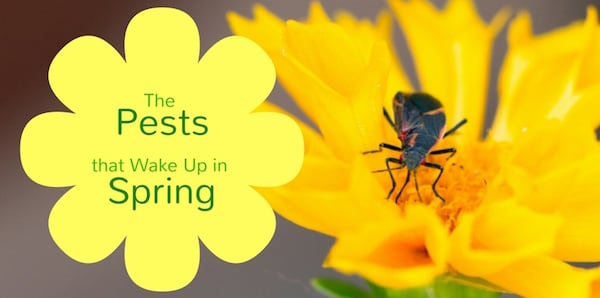
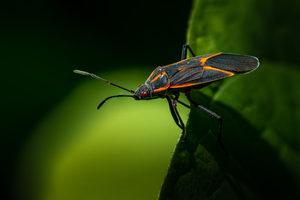 Starting in early fall, boxelder bugs go looking for dry, warm places where they can wait out the winter. Unfortunately, those dry, warm places often include our homes. When spring comes around,
Starting in early fall, boxelder bugs go looking for dry, warm places where they can wait out the winter. Unfortunately, those dry, warm places often include our homes. When spring comes around, 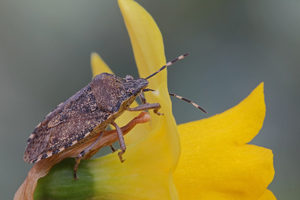 Stink bugs follow a similar seasonal routine to boxelder bugs, and they’re around for the same reasons. During fall, they desperately seek out any warm place where they can
Stink bugs follow a similar seasonal routine to boxelder bugs, and they’re around for the same reasons. During fall, they desperately seek out any warm place where they can 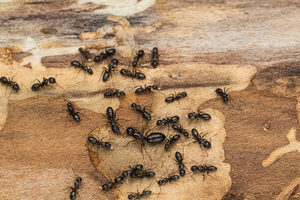 During spring, the infamous wood-infesters
During spring, the infamous wood-infesters 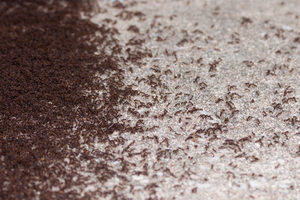 Unfortunately, carpenter ants aren’t the only ants reproducing and foraging in the spring and summer. In late spring, the brief but very active
Unfortunately, carpenter ants aren’t the only ants reproducing and foraging in the spring and summer. In late spring, the brief but very active